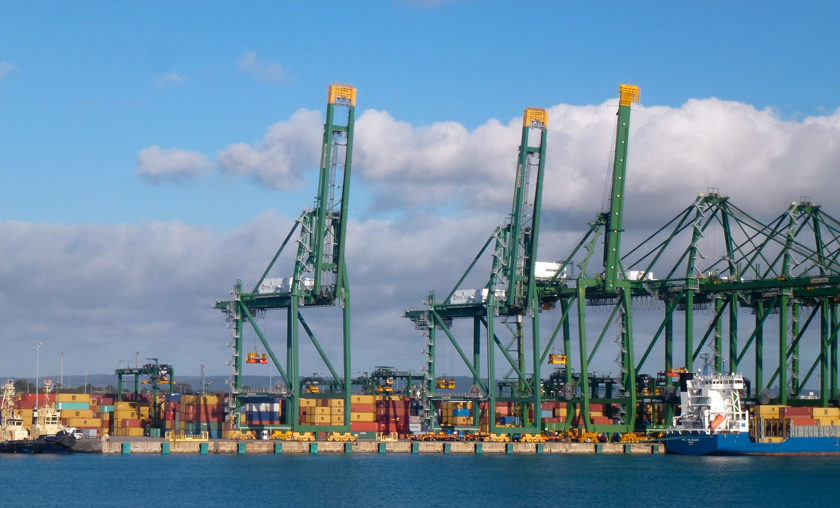The project of the new Barreiro’s containers terminal (in the Lisbon port) involves a two phased construction of a 1.500 m long pier, to serve cargo ships. This new terminal will be comprised of a pier (two projected alternatives) and an embankment that will accommodate both a containers park and a logistics zone. Interventions in the river will include: dredging of a navigation channel to access the terminal and dredging of a manoeuvre basin and a dockage basin (each comprising two projected alternatives).
The positive evolution of the number of containers circulating through the Lisbon port in the last few decades, along with the crescent over-sizing of the cargo ships and the predicted growth of the maritime transport sector worldwide has motivated several studies and analysis to determine the best location for a new containers’ terminal in Lisbon. The three existing containers’ terminals in Lisbon account for 744,000 TEU annually, but numbers are expected to rise to 2.7 million TEU/annually, by 2048. The new Barreiro containers’ terminal should account for 1.1 million TEU (phase 1, pier of 800 m) and 2.1 million TEU (phase 2, pier of 1,500 m).
Nemus has taken part in the Environmental Impact Assessment (EIA) of this project. Since the project will involve both dredging a considerable amount of sediments and depositing it in the most suitable area in the Tagus estuary, the following campaigns and analysis were made (and led by Nemus):
- Sampling campaign of surface layer of sediments in the river: 10 samples
- Sampling campaigns of deep sediments: 34 probes using a mobile sampling platform that retrieved cores from 2 m to 17 m depth
- A total amount of 276 sediment samples were analyzed for contaminants
- Surface water sampling campaign to analyse for heavy metals and other chemical and physical parameters
- Sampling campaign of sediments’ fauna (benthic macro invertebrates)
- 35 technical underwater archaeology scuba dives that lead to the discovery of three unknown wrecks, dating from the XIX Century onward
[Consortium lead by Consulmar, with Nemus’ key participation]

